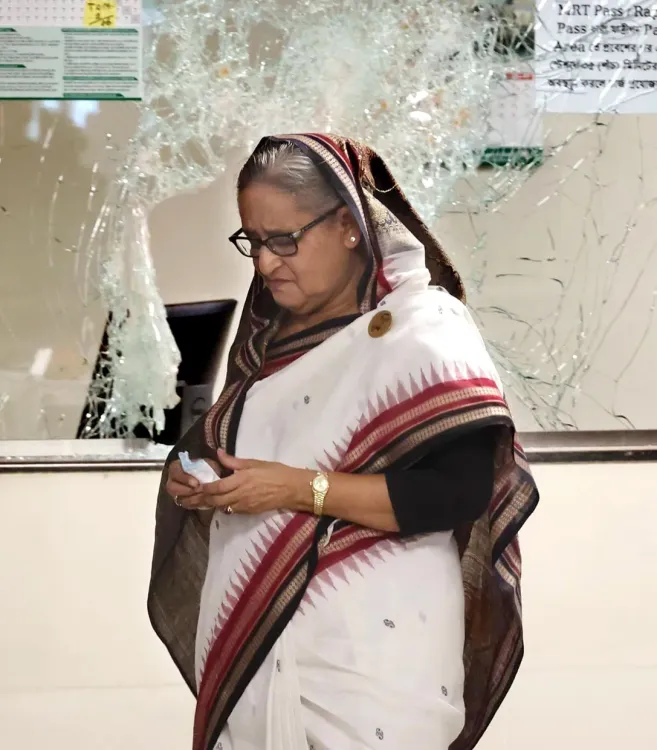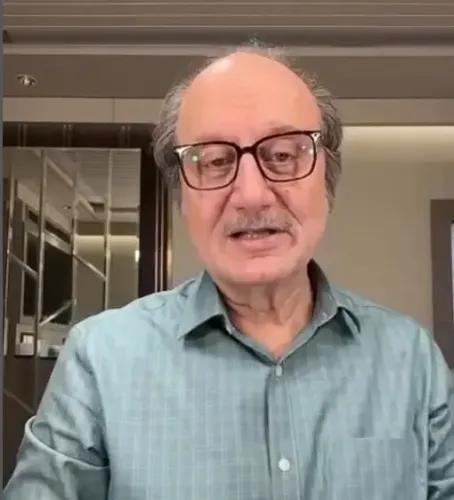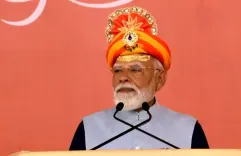Why Was Former PM Sheikh Hasina Sentenced to Six Months in Prison?

Synopsis
Key Takeaways
- Sheikh Hasina sentenced to six months for contempt of court.
- Awami League condemns the trial as politically motivated.
- Concerns over judicial integrity and due process in Bangladesh.
- Political analysts view the ruling as part of a vendetta.
- Hasina's government established the tribunal to address war crimes.
Dhaka, July 2 (NationPress) The International Crimes Tribunal (ICT) of Bangladesh has handed down a six-month prison sentence to former Prime Minister Sheikh Hasina on charges of contempt of court. In a related development, Shakil Akanda Bulbul, a prominent figure in the Awami League's student faction, the Chhatra League, received a two-month jail term for the same case.
The verdict was delivered by a three-member tribunal led by ICT Chairman Justice Golam Mortuza Majumdar, as reported by local news outlets.
The contempt charges stem from a viral audio recording that surfaced on social media, allegedly featuring Hasina making remarks that suggested interference in judicial proceedings and threatening the tribunal.
Previously, the ICT had issued a show-cause notice to both Hasina and Bulbul following the allegations of contempt of court. Notably, Hasina has been out of the country since August 2024.
The Awami League has vocally condemned the initiation of trial proceedings against its former leader, labeling it a “show trial” orchestrated by the “unelected and undemocratic” regime of Muhammad Yunus.
The party has raised concerns about the fairness of the ICT process, underscoring previous warnings from the United Nations regarding the absence of due process and fair trial standards.
According to Awami League officials, since Yunus took office, the tribunal has prosecuted only members of their party while neglecting crimes against civilians, journalists, religious minorities, and women.
The party has expressed skepticism about the trial's impartiality, noting that several current administration officials have publicly declared Hasina guilty, casting doubt on the fairness of the judicial process.
“This cannot and would not be a fair trial in any jurisdiction,” the party stated.
Ironically, the tribunal was established under the government led by Sheikh Hasina to prosecute individuals responsible for genocide, crimes against humanity, and war crimes committed during the 1971 Liberation War in Bangladesh.
Political analysts view these developments as signs of a significant political vendetta by the interim government led by Yunus, as numerous cases against Hasina and her supporters emerged immediately following her ousting in August 2024.
Sheikh Hasina, a key figure in the fight to restore democracy in Bangladesh and daughter of the nation's founder, Sheikh Mujibur Rahman, was forced to flee to India on August 5 under dire circumstances.










